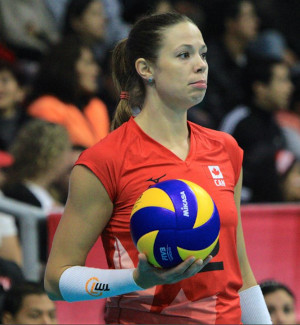Volleyball 101: Where to Bet on Volleyball in 2022
If you want to bet on an exciting sport that is easy to learn, volleyball can be a lot of fun. In this guide, we are going to introduce you to everything you need to know to get started wagering on this sport.
You can find our recommended volleyball betting sites directly below. If you scroll past the sites, you can check out our full guide. We will go over key volleyball competitions, types of bets you can place, strategy, and more.

You just may end up having a great time betting on some Volleyball action, so let’s get you started!
Where to Bet on Volleyball
Let’s get stated by going over our vetted list of volleyball betting sites. These are all online sportsbooks we have years of experience with. We’ve built great relationships with these bookies, and know you will too.
Ask a random person to name just one US-facing sportsbook, and chances are good they will promptly reply, “Bovada.” Even with more sportsbooks moving into the US space, Bovada remains one of the top go-to choices for bettors across the country. You will love their many betting markets, their bonuses, and their customer support.
Bovada offers action on regular court volleyball and beach volleyball. At the time of this writing, we are seeing wagers accepted on Champions League, Russia – Liga Pro, and the beach volleyball Winners Cup.
When you sign up at Bovada, do not miss out on the site’s $250 Sports Welcome Bonus. There is an even bigger sports welcome bonus for those depositing bitcoin — $750!
If you are also going to be enjoying Bovada’s casino, you can grab the $3,000 Casino Welcome Bonus (which bumps up to $3,750 for bitcoin).
You also are going to appreciate Bovada’s rewards program, which lets you Earn Points for Cash. If you take some time off betting, you will maintain your account tier and your benefits.
One of the very best sites for wagering on volleyball is CloudBet, a crypto sportsbook. You can deposit your money in a snap and rest assured that your funds are safely kept in cold storage.
We are impressed with CloudBet’s large selection of volleyball events! CloudBet offers court volleyball and beach volleyball. At the time of this writing, we see action for:
- Liga Argentina
- Bundesliga in Austria
- Extraliga in the Czech Republic
- VolleyLigaen in Denmark
- Mestaruusliiga in Finland
- A1 in Greece
- Russian Liga Pro
- Liga Siatkowki in Poland
- Champions League
- and Challenge Cup
You will also be thrilled at the welcome match deposit bonus CloudBet offers, which can range as high as 5 BTC! Thursday deposit bonuses, zero margin sports bet, and the CloudBet Loyalty Club offer even more value.
Our next recommendation for volleyball betting is to head over to MyBookie. While there is a lot to love about this site, our favorite thing about MyBookie is how quickly and reliably they pay out customers’ winnings. Their huge selection of betting markets is excellent too.
Among those markets is volleyball. At the time of this writing, there is action on Russian and Polish volleyball.
When you first deposit at this site, you can get a match that doubles your deposit amount, or you can pick a 10% Cash Bonus up to $200. For casino gambling, there is a 150% Bonus up to $750 on your first deposit.
MyBookie treats loyal customers right with a 25% Sports Reload Bonus up to $500. There are a bunch of weekly bonuses you can take advantage of too.
While you are at it, be sure to regularly swing by the Contests page at MyBookie for additional exciting opportunities.
BetAnySports, also known simply as “BAS,” is here to fill the void left by 5Dimes.eu. The software is the same, the features are about the same, and the experience is, well, pretty much just like 5Dimes (which is awesome). BAS offers volleyball under the category of “Other Sports.”
BAS offers the same “Pick Your Promo” plan that we remember from 5Dimes. There are a lot of really exciting options too, like The Less Juice Package. You might also be interested in the 35% Free-Play Bonus, the Kickback Package, or the House Money Program. There are some other options too if you are interested in playing casino games or the lottery.
SportsBetting used to be owned by a completely different company, and under that company, the site was not doing so hot. But ever since BetOnline bought it out, it has been one of the best sites you can wager on.
At the time we are writing this, we are not seeing any volleyball wagering, but we know for a fact that SportsBetting does sometimes offer action on volleyball. So, it is worth checking in with them for major events.
Be sure to take advantage of the site’s sweet promotions as well. These include a 50% Sports Welcome Bonus up to $1,000 for those depositing USD, or a 100% Initial Deposit Bonus for crypto. When you reload your account, you can get a 25% Bonus for USD or a 35% Bonus for crypto.
Also check out the famous Odds Boosters promo! As SportsBetting says, “Each and every day we will boost-up the odds on numerous sports betting markets.”
Another great site for betting on volleyball is GTBets, also sometimes called by the full name “Game Time Bets.” For more than a decade, this site has impressed us with its exciting promotions and reliable support.
When you sign up to wager on volleyball at GTBets, check out their Promotions, Sweepstakes, and Rewards Program.
Also, make sure that once you are all signed at GTBets you also sign up for their Email Promotions option, where you’ll get plenty of personal bonuses sent just to you every week.
Everygame may not sound like the most familiar name. But once you visit the site, it may look familiar, as you recognize the good old-fashioned “Intertops” betting interface. Yep, this is the same site, just with new branding.
True to its new name, Everygame lets you bet on almost anything, volleyball included. When you sign up, you can claim a $750 Bonus. Other promotions that are worth checking out include $500 Present For Their Odds Hunter, 20 x $50 Parlay Free Bets, and a $1K Monthly Parlay Prince among others.
You will also notice that Everygame runs some other cool promotions that come and go depending on what events are taking place in the world of sports. These special offers are often, but not always, for major sports. So, sometimes opportunities might come up relating to other sports like volleyball.
The folks who run MyBookie also run Xbet. So, naturally, that means that they also offer betting on volleyball. In fact, at Xbet, you will find the same basic selection of events to wager on. So, at the time of this writing, that is again Russian and Polish volleyball.
When you make your first deposit, you can receive a Match Bonus up to $500.
Reload Bonuses of up to $250 will continue to ensure you have plenty of funds to wager with as you top up your account. Xbet also offers an initial deposit bonus of up to $500 for the casino side of the site, plus Casino Reload Bonuses of up to $500.
- Verdict: It’s a tie!
Any one of the sites above can offer you competitive odds and amazing bonuses as you wager on volleyball, but we can easily pick out CloudBet as the number one destination for volleyball betting. You’re going to find the most bets over this way as far as volleyball goes, and that 5 BTC Welcome Bonus sure doesn’t hurt in the slightest!
CloudBet offers the largest selection of leagues and events to bet on by far, and should keep you busy with court and beach volleyball action.
So how is this any kind of tie?
We know that most of you here are in the US, and Cloudbet doesn’t allow US players. Unfortunately, that’s just all there is to it.
For those of you that are here in the states, we would have to probably go with MyBookie as the winner as you’ll usually find the most different types of bets over there.
And then of course we have to point something out. You really cannot go wrong with any of the sites that we have listed here!
What is Volleyball?
Volleyball is a simple game played by two small teams, where the goal of each is to hit a ball over a net and hope it lands on the ground on the other side.
The basic rules are as follows:
- At the start of play, a player serves. This just means striking the ball up into the air and over the net. The ball must not be thrown. The serving player also must not step out in front of the boundary line. If they do, it is called a “foot fault.”
- The goal of each team is to prevent the ball from hitting the ground on their side of the net, and to cause it to do so when it is on the opposing team’s side.
- Any given player can only touch the ball a single time in a row.
- The ball must be sent back over the net within three touches. Once again, it is not permitted to catch the ball and throw it.
- Each round of play that starts with a serve and ends with grounding the ball is called a “rally.”
- Winning a rally results in a point.
- If a team wins a rally, it is able to serve at the start of the next one, providing it an advantage.
- If a player hits the ball into the net, it is a foul.
There are a lot more rules governing the sport of volleyball, but this is just a simplified overview. You would easily learn the rest as you follow the sport!
And before you go clean up and win some cash, maybe you’d also be interested in where the best places are to wager on some Cycling Action!
Indoor Volleyball vs. Beach Volleyball
Typically, when we talk about “volleyball,” we are referring to a sport that is played on a court measuring 9 m × 18 m (29.5 ft × 59.1 ft). The game takes place indoors.
But sometimes, volleyball takes place on sand instead of a court, and is outdoors. This is called “beach volleyball.” Beach volleyball also differs from indoor volleyball in that the team composition is different. Instead of each team consisting of six players (as is the case for indoor volleyball), there are just two players on each team.
Generally speaking, you will likely find more action for indoor volleyball than beach volleyball. But you can wager on both. That brings us to the next section.
Here are some important differences to be aware of between indoor volleyball and beach volleyball:
- Beach volleyball takes place on a sandy court that measures 16m x 8m, which is a smaller space in which to play than the indoor courts that measure 18m x 9m.
- There is an attack line on an indoor court, but not on a sandy court.
- The sandy surface of a beach volleyball court behaves very differently from an indoor court surface. It also is much more fatiguing to play on.
- Beach and court volleyball are not even played with the same size or material of balls. The ones that beach volleyball players use weigh less than those that indoor players use.
- An indoor environment is, of course, climate-controlled. There is no sudden wind to worry about. On a sandy outdoor court, it is different. And actually, that is why the ball weighs less. The weather is supposed to impact the game.
- As just mentioned, there are two players to a side in beach volleyball, and six to a side in indoor volleyball.
There are up to five sets in an indoor volleyball match. The first four have 25 points, and the fifth has 15. The only reason to play a fifth set is if each team wins two sets. If one team wins three, they win the whole game. By contrast, there are only up to three sets in beach volleyball. The first two have 21 points, and the last has 15. The only reason to play the third set is if each team wins only one of the prior two sets. If a single team wins both, they win the whole thing.

When you win some cash on your bets, we promise that you’ll look just like Tom Cruise playing some Volleyball!
Important Volleyball Events
What volleyball events can you bet on? Here are some key events that you can look forward to:
- Volleyball at the Summer Olympics
- Beach volleyball at the Summer Olympics
- FIVB Volleyball Men’s World Championship and FIVB Volleyball Women’s World Championship
- FIVB Volleyball Men’s World Cup and FIVB Volleyball Women’s World Cup
- FIVB Beach Volleyball World Championships
- FIVB Beach Volleyball World Tour
- FIVB Men’s Nations League and FIVB Women’s Nations League
- FIVB Men’s Challenger Cup and FIVB Women’s Challenger Cup
- FIVB Men’s Club World Championship and FIVB Women’s Club World Championship
Since the 1960s, men and women have competed in indoor volleyball events in the Summer Olympic Games.
The Olympics added beach volleyball in the 1990s. The original demonstration match took place in 1992, and regular men’s and women’s beach volleyball matches have taken place since 1996.
The Fédération Internationale de Volleyball (FIVB) oversees this pair of prominent international competitions, which have been going on since the mid-20th century. For both, 24 teams compete, and there is a three-year qualification phase. These qualifying events leading up to the World Championship are called the World Championship Finals. The host nation qualifies automatically. This event takes place every four years.
The Men’s World Cup started in 1965, and the Women’s World Cup began in 1973. For both, 12 teams participate, and the host country qualifies automatically. For a team to qualify for the Olympic Games, they need to be one of the top two teams in the World Cup. This event takes place every four years, like the Olympics.
This is yet another major international event that the FIVB oversees. It has been taking place since 1997. After beach volleyball at the Olympics, it is the most prominent event in the sport. Men and women compete separately, with 48 teams participating for each. This is a biennial event.
The next most important beach volleyball event after the FIVB Beach Volleyball World Championships is the World Tour. Previously, it was called the FIVB Beach Volleyball Swatch World Tour. The men’s World Tour started in 1989, and the women’s World Tour began three years later. It takes place annually. 27 tournaments take place during the World Tour.
These events take place each year, and started in 2018. Despite how new they are, they are quite important in the volleyball world. They took the place of a defunct competition called the World League.
To qualify for the Nations League, one must first participate in the Challenger Cup. So, this event got started at the same time, and also takes place annually.
This event started for men in 1989 with four teams participating, and in 1991 for women with six teams participating.
A couple of prominent volleyball events in the past that no longer take place are the World League, which ran every year from 1990 through 2017, and the World Grand Prix, which took place between 1993 and 2017 every year.
Along with these major competitions, you will also find many smaller events that you can wager on.
Why Bet on Volleyball?
Here are a few reasons to think about wagering on the exciting sport of volleyball:
- You might get an edge
- Games throughout the year
- A fun, fast-paced sport
- Easy to learn
Volleyball is a popular sport, but not on the level of, say, NBA or NFL. As a result, researching it requires more legwork. Also, fewer people bet on it. The result is that oddsmakers may not do as well setting accurate odds for this sport as they do for others. But if you devote sufficient time and research, you might be able to make more accurate assessments. That should give you plenty of opportunities to find value in the odds.
Whether it is summer or winter, you should be able to find volleyball games that you can watch and wager on.
Every volleyball match is action-packed. You should have as much fun watching this sport as you do placing your bets.
All told, it is not too hard to pick up on the basics of volleyball, even if you have only spent a short time watching it. So, even if you are brand new to the sport, it should be easy to dive into betting.
History of Competitive Volleyball

When she has that look on her face and says “Wow”, she actually isn’t impressed with something you just did. It means you’re in trouble.
The history of volleyball is easy to trace, with its roots in Holyoke, Massachusetts, in 1895. That year, YMCA physical director William G. Morgan came up with the game as an alternative to basketball. The game needed to be less intensive than basketball, and it needed to be played indoors.
The first set of formal rules was printed up in 1897 in the Official Handbook of the Athletic League of the Young Men’s Christian Associations of North America. The YMCA and NCAA partnered to put out a revised set of rules in 1916.
Volleyball’s original name was “mintonette.” It was actually a Springfield College professor who later coined “volleyball” as the name that stuck.
It did not take long for volleyball to become popular far beyond the YMCA. Though it was the YMCA that organized the first US volleyball tournament in 1922 in New York City. Just six years later, the United States Volleyball Association (USVBA) was founded, becoming the governing entity for the sport.
Beach volleyball showed up in 1930. Not surprisingly, it got its start in California. It took a while for it to become organized, however. Indeed, it was not until 1948 that the first organized tournament took place.
How did volleyball make its way around the world? During WWI, soldiers from the US brought the sport over to Europe. From there, it started to spread throughout the rest of the world, with other countries creating their own governing organizations.
In 1947, the international governing body for the sport formed in Paris, called the Fédération Internationale de Volley Ball (FIVB). In the 80s, the FIVB relocated to Lausanne, Switzerland. It was also in that decade that the FIVB became involved with governing beach volleyball.
Today, the FIVB continues to oversee volleyball on an international level, with over 210 participating member countries.
Types of Volleyball Bets
Now you have a lot more context on volleyball itself. But you are probably wondering what types of wagers you can place on this sport.
- To win
- Totals sets
- Handicap
- Correct score
- To win first set
- Futures
- In-play bets
- Accumulators
- Assorted proposition bets
The most basic type of bet you can place on volleyball is which team will win a match. This is a great starting point if you are a newbie.
Do you think you know how many sets there will be in a match? You can place a totals bet on it.
With this type of wager, a sportsbook adds or subtracts points to the teams so that they are more evenly matched.
If you believe you know what the final score will be for a volleyball match, you can make this type of bet.
There might be times when you do not feel confident saying who will win the entire game, but you believe you know who will win the first set. When you do, you can make this type of wager.
Do you think you know what the outcome of an event scheduled weeks or months from now will be? Then you can make a futures bet. While it is hard to make accurate predictions far in advance, such a wager can pay off well when you get it right.
Volleyball’s fast-paced nature makes for an exciting experience making live bets.
If you are up for a long shot, you can make an accumulator bet. With this type of wager, you make multiple selections. If all of them win, so do you. If even one loses though, your entire stake is gone. The good news is that you only need to wager a small amount to potentially win big.
You can sometimes place a range of bets on volleyball that do not directly involve the outcome of a match. These are called proposition bets, or “props” for short.
Tips for Betting on Volleyball
- Research stats
- Conduct additional research on players and teams
- Evaluate the quality of the roster
- Know how well a team functions as a unit
- Consider location
- Be aware that teams may not value all matches equally
- Test your strategies on paper first
- Shop the odds
A good starting point for betting on volleyball is the same as it is for other sports, and that is to look up statistics for teams and individual players. Put the most weight on their recent performance.
You can add qualitative research into the mix as well. Look up tweets from players as well as news articles and interviews. Watch recent matches too. Get a feel for the strategies the teams are using as well as their mindsets.
When a match is on, you will see six players on each side. But the total roster size is up to twelve players. When you think about it though, that is not a huge number of players. That means that every single player matters. So, before you bet on a team, make sure you have considered the depth of the full roster.
Any team sport requires coordination, and volleyball is no exception. But with all the action packed into relatively tight quarters, it is particularly vital that team members work well together and be able to quickly read each others’ intentions and strategize in the moment.
If a team is traveling, think about how both their traveling schedule and their match location could impact their play.
Do not forget that indoor and beach volleyball are different. If you are used to betting on one and have no experience with the other, you will need to study up a bit before you start betting. Otherwise, you will make incorrect assumptions that will work against you when you wager on the form of the sport with which you are less familiar.
Based on the point in the season they are at as well as their recent record and goals, you may be able to make an educated guess as to how hard they will fight for a victory.
Just as research should always play a role in your sports betting, so should testing. Bet on paper on volleyball before you bet with cash. Make sure you know what you are doing, and then put your money on the line when you start seeing results.
To be a profitable punter, you need to identify volleyball teams that have been over- or undervalued by sportsbooks. You are looking for the biggest discrepancy between the odds that you have come up with through your own handicapping and those you find at online betting sites. That is where you may have the greatest advantage.

You’re just about ready to head to one of your sites of choice and win some cash!
Volleyball Glossary
Finally, to close up this post, we will go over some basic terms that are useful to know when you are following and betting on volleyball.
- Ace
- Anatennas
- Approach
- Assist
- Attack
- Attack error
- Attack line
- Backcourt
- Back row attack
- Ball handling error
- Beach dig
- Beer
- Block
- Breakpoint
- Butter
- Bump
- Campfire
- Center line
- Closing the block
- Cross-court shot
- Cut shot
- Deep dish
- Deep set
- Dig
- Dime
- Double block
- Double hit
- Doubles
- D.S.
- Dump
- Fishing
- Five-One
- Floater
- Forearm pass
- Four-two
- Free ball
- Goofy footed
- Heat
- Held ball
- Hit
- Hitter
- Hitting percentage
- Joust
- Jungle ball
- Jump serve
- Kill
- Let
- Line
- Mis-hit
- Off-speed hit
- One-two
- Overhand pass
- Overhand serve
- Pancake
- Power alley
- Rainbow
- Red card
- Roll shot
- Roof
- Rotation
- Server
- Service error
- Set
- Shank
- Side-out
- Six pack
- Spike
- Spatch
- Strong side
- Stuff
- Whiff
- Underhand serve
- Weak side
- Yellow card
While this might sound like a good thing, it isn’t. It is what we call it when a serve goes wrong. The other team gets a point for this.
These are the red and white striped rods you see standing up towards the ends of the net.
When you see a player making a quick movement toward the net before leaping up, that is an approach.
One player gives another an assist by passing them the ball so that they are able to attack. Most of the time, this is the second contact with the ball, not the first.
This is the act of striking the ball over the net and attempting to ground it. It usually happens on the third contact.
This happens when a team hits a ball out of bounds when attacking or strikes the net itself. If the opposition successfully blocks the attack for a point, it is also called an attack error. Any illegal contact or center line violation from the attacking player results in an error too.
This is the line dividing the players in the front and back rows. It is located at a distance of 3m from the net. Another name for it is the 10-foot line.
This name refers to the space between the attack line and the end line.
As the name implies, this is an attack by a player in the back row. The attack is only legal if the player does not cross the 3m line or touch it while leaping up.
This is a category of errors that include thrown balls, lifts and double hits.
Receiving the ball with an open hand is known as a beach dig, or sometimes as a deep dish.
If an attacker hits a ball between the legs of a defender, we call it a beer. The idea is that the defender owes a beer to the attacker.
To block the ball means to counter an attack and return it to the other side of the net.
If a team scores a point on a serve it makes, it is referred to as a breakpoint.
This term refers to a perfect set. Other slang terms which refer to the same are smoothie, nectar, sauce, or cheddar biscuits. The opposite of this is a chowder, which is a set that went very wrong.
Passing the ball using one’s forearm is bumping it.
If a ball lands in the middle of a cluster of players, it is called a campfire.
This is the line beneath the net.
When players join the primary blocker to wall off part of the court, they are closing the block.
This is a type of shot that is similar to a cut shot (see below), but which can land at any point of the opposite sideline.
Sometimes known as a cutty, this is an attack which takes place from zone 2 on one side to zone 2 on the other, or from zone 4 on one side to zone 4 on the other. You will typically see this type of shot in beach volleyball.
You will sometimes see this in beach volleyball. It is when a set is held too long. Other terms include Evan set and Chicago style pizza. It is illegal.
Hitting away from the net is called a deep set. The goal of a deep set is to confuse blockers.
If a ball is spiked across the net and a player manages to pass it, that is a dig.
If someone says a pass was a “dime,” they mean it was perfect. They might also call it a “rock.”
When a pair of players teams up to block an attack, it is a double block. Unlike a double hit (see below), this is legal, so do not mix them up.
It is illegal for one player to contact the ball twice in a row. This is called a double hit.
This is simply a format of volleyball game with two players to a side. Usually, doubles are a form of beach volleyball.
This abbreviation refers to the team’s defensive specialist.
When a front row setter dumps the ball, they are attacking in a surprising way, and often toward zone 4.
This is a slang term that refers to illegal contact with the net.
This refers to a particular type of offensive system that features a single setter and five hitters.
If someone serves a floater, they did not put sufficient spin on the ball. As a result, it wanders rather than flying straight.
This is a pass where a player connects their arms together and then uses their forearms to pass the ball underhand.
This type of offensive system uses a pair of setters and four hitters.
When it is not possible to attack, a team may use a pass to return a ball. This is called a free ball.
If a player uses the incorrect foot to jump during an attack, we may say that they are goofy footed.
If a ball has a lot of heat on it, that just means it is moving fast.
The ball should keep moving during contacts. If it does not, then it is a foul called a held ball.
This just refers to an overhand attack.
This is simply an attacker.
This tells you what percentage of attempted hits were successful.
Sometimes two opposing players will meet at the net and both simultaneously try to hit the ball. We say that they are jousting.
This is a derisive term that someone may use to assert that the players in a game do not know what they are doing. They could call it picnic volleyball as well.
When a server throws the ball upward, then jumps and hits it, that is a jump serve.
When an attack achieves a point or side out right away, it is a kill.
This is a serve that results in the ball hitting the net. It needs to make its way over the net to be played. In the past, however, it was considered a service error. The change was made in 2001.
The boundaries of the court are also called the lines.
This is a successful strike of the ball, but the ball goes off in the wrong direction because the player did not hit it in the manner they wanted to.
If a player hits a ball with the spin they intended but not with full force, it is called an off-speed hit. Note that this is not necessarily a mistake. Sometimes it is deliberate.
The attack is usually attempted on the third contact with the ball, but sometimes, it happens on the second contact. It can be called a one-two when it happens this way, or a turn and burn or a setter dump.
This is a type of pass just above the head with open hands.
When a server strikes the ball from above the shoulder, it is an overhand serve.
Sometimes a player may make a last-minute defensive move to stop a ball from striking the floor. They dive down on the floor on their stomach and extend an arm. The ball strikes the back of their hand instead of the ground.
When a spiker sends the ball as far away as possible with a cross-court hit, it is called a power alley.
If a player is able to send a ball to the far corner, passing over a defender’s head en route, it is called a rainbow. Another slang term that can be used is jumbo shrimp. Normally, this phrase is used in the context of beach volleyball.
This is the worst type of penalty. If a player gets a red card, there are a few possible outcomes. Sometimes, that player may be disqualified. Other times, the team could lose a point or the serve. One may receive a red card even without getting a yellow card first.
This is a type of arcing off-speed attack. A player may attempt it in an effort to throw off defenders.
If a blocker can send a ball directly downward to land on the side of the attacker, it is a roof.
As the game proceeds, players rotate their positions clockwise.
This is the person who serves the ball to put it in play.
This is a category of unsuccessful serves. A foot fault is a service error, as is a serve that goes out of bounds or strikes the net and does not then go over it.
Typically, the attack takes place on the third contact. The second contact is usually made by the setter. When that person hits the ball into the air to line up the attack, that is a set. The attacker then attempts to get it over the net.
A shank is a pass that members of a team cannot make use of.
If the team that grounds the ball is the receiving team rather than the serving team, it is a side-out. It is also considered a side-out if there is an unforced error by the serving team.
When a blocker is struck by a ball that was spiked, we call it a six pack. Other terms that can refer to this type of hit include dome, tattoo, or facial.
This is just another way of referring to an attack.
This is a term that refers to a ball going in a direction that was unintended by the player who hit it. Another slang term that refers to the same thing is waffle.
This usually refers to the left side of the court. The reason is that most players are right-handed, and can attack best from the left. Another term for it is the on-hand side. Note that if a player is left-handed, it is the right side of the court that becomes their strong side.
This word sometimes is used to refer to a block.
This is when a hitter only manages to brush a ball with a couple of fingers.
This is when a player swings upward on a ball with a fist to serve it from about the level of the waist.
Normally, this refers to the right side of the court—at least when we are talking about right-handed players. The weak side is the left side of the court if a player is left-handed.
Less serious than a red card is the yellow card, which is a warning. But if a second yellow card is received during the course of a match, the result is a disqualification.
Additionally, there are quite a few different terms that refer to specific types of sets. We will not share all of these or their definitions, but some examples include:
- A
- B
- Back-Two
- Bick
- Chaos
- Five
- Hut
- Jones
- Pipe
- Shocker
- Thirty-Two
There are other volleyball terms to know, but at least now you should have enough that you will not feel too lost when you start watching the sport or reading about past games for the first time.
Bet on Volleyball Now
Are you ready to wager on indoor or beach volleyball? Click on any of the links in this post to sign up now on one of our recommended online sportsbooks for volleyball. Consider joining more than one so you can grab extra bonuses and shop the odds!
There’s really nothing more to do here than wish you good luck in your betting endeavors!
And make sure you also take a look at these articles as well!










